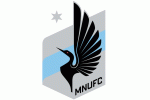From arguably the best Hockey blog out there-- Puck Daddy on Yahoo
Hello, this is a feature that will run through the entire season and aims to recap the weekend’s events and boils those events down to one admittedly superficial fact or stupid opinion about each team. Feel free to complain about it.
The formula, all along, was pretty evident.
The Boston media and fans spent the entire run-up to their series against the Canadiens talking about one thing: Penalties. The Habs would dive and cheat and subvert at every turn in an attempt to draw them, and the Bruins would stand there, innocent, while it all happened around them.
This series between bitter archrivals has often by typified by its violence, and it's always one side that feels aggrieved by the other's antics. Canadiens fans will say their team doesn't dive, but Boston does. Bruins fans will say the same of their team while throwing shade at the Habs. Always.
But the problem, at least from the Bruins' point of view, is that the team seems to buy into this as well.
Case in point: Shawn Thornton was lining up to hit PK Subban right between the numbers a good six feet from the boards, when Subban appeared to bail on the hit, ducking down and sending Thornton to the room with what appeared to be a knee injury. After the game, the implication from Thornton was that this was a cheap tactic for cowards, and may have been designed to intentionally hurt him. Whether that's the case is immaterial, and impossible to determine besides. But that's the kind of thing that stems from Milan Lucic calling Alex Emelin a chicken: The Bruins so greatly dislike Montreal that they bring extra physicality to every game against them.
Which, if their own theories are to be believed, only leads to more diving and more calls against them.
And so the reason this series is going back to Montreal tied at one game apiece, rather than being a 2-0 Bruins lead, is because they believe their own bull. In the days before this series, the number of penalties drawn by the Canadiens versus the number drawn by the Bruins — not only in the long, ongoing drama between them, but overall this season — was held up as evidence, flimsy though it might have been, that this was the case. Thus, they hold the Habs beneath their considerable contempt (as self-assigned moral arbiters of the league), and treat them viciously as a consequence. Refs take notice, Montreal scores on the resultant power plays, games are closer than they really have any right to be.
That's why the Bruins seem to always lose to Montreal. That's why Tuukka Rask had never beaten the Canadiens in a game at TD Garden until Saturday afternoon. They imagine their problems into being.
The Canadiens are very much in the Bruins' heads in this regard. It's not so much that they draw a particularly inordinate amount of calls against them (just nine in about 145 minutes of this series), it's that every one is seen on the Boston bench as having been the result of a dive or embellishment that they'd never get away with themselves.
(It's important to note, too, that the Bruins are still playing a pretty thin defense just about every night here. Andrej Meszaros and Kevan Miller and Matt Bartkowski shouldn't be getting the amount of ice time they have, but this is an injury-riddled D corps and so that's going to happen more than it should. That, too, leads to problems on the penalty kill in particular. And when you're already aggrieved, you're going to get frustrated.)
Montreal has scored seven goals in this series, and four of them were on the power play. The Bruins, on their five man advantages, have scored none of their eight goals (one of which, to be fair, was into an empty net). That tells you everything you need to know about these two games so far: It's not so much that the Canadiens are diving — they aren't — it's that special teams have been a nightmare for the Bruins. Just 5 for 9 on the PK and 0 for 5 on the power play.
There have been a little more than 114 minutes of 5-on-5 hockey in this series, and during that time Montreal has been outscored by the Bruins 7-3, a 70 percent goal share, which breaks down to 3.68-1.58 per 60 minutes. That's equivalent to a blowout. The possession battle doesn't break down favorably for the Canadiens either, as corsi in the series is 130-77 (62.8 percent) in Boston's favor. They are, flatly, dominating even strength play in this series, and thus the old adage “stay out of the box” becomes more than just one of those things lazy TV producers put up as one of the Keys To The Game at the start of a broadcast: It should be a mantra. The Bruins are crushing Montreal at even strength, and their obsession with putting the Habs on the power play is the only thing keeping those diving crybabies alive.
Those two big Bruins comebacks, to erase multiple-goal deficits in each third period so far? They came as a result of Boston leaning on the Habs through indomitable even-strength hockey for the previous 40-plus minutes. It breaks everything down for that overmatched opponent. And guess what else the Bruins do in the third period: They don't take penalties. Montreal has gone on one third-period power play in these two games (and scored on it, because of course they did), and that opened the door for the Bruins to beat Carey Price six times in the final 20 minutes of regulation.
It's not a coincidence. It's not physical hockey sowing the seeds that can only be harvested when the Bruins are down two or three goals as the death draws near. It's because they're a significantly better hockey team, and they're always going to bully an opponent of Montreal's middling quality when they actually start playing hockey.
Stay out of the box, and you probably win the next three games in a walk. It worked against Detroit. It'll work here too. The Bruins just have to be smart about it.
But against Montreal, they usually don't let that enter the equation










